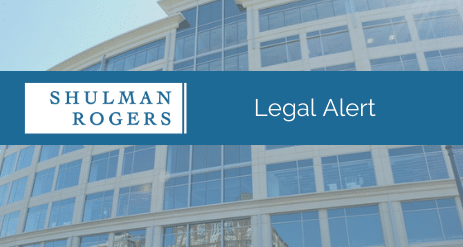
There is some good news for commercial landlords who grant rent deferrals to tenants that subsequently file for bankruptcy relief.
Under Section 547 of the Bankruptcy Code, a debtor or trustee can seek to recover payments made to creditors within 90 days of a bankruptcy petition. Typically, if a tenant makes regular rent payments in the ordinary course and continues to do so within that ninety day period, the landlord will have an “ordinary course” defense and will not have to return the lease payments. However, if a landlord agrees to rent deferrals and then receives payments that were not made in accordance with the lease, in a subsequent tenant bankruptcy, those payments would be recoverable as preferential payments. While it seems unfair that a landlord that agrees to rent deferrals to accommodate a tenant should subsequently have to return any payments made at a later date, that is how preferences work in bankruptcy1.
On December 21, 2020, Congress passed a $900 billion pandemic relief package. Included in the relief are some Bankruptcy Code provisions which are designed to temporarily assist individuals and businesses during the COVID crisis. The most significant change for commercial landlords is the change to Section 547 which permits the recovery of preferential payments. The CARES Act has created a temporary exception to preference recoveries by exempting deferred payments delivered in accordance with rent deferral agreements made after March 13, 2020. These exemptions apply only to non-residential leases and only cover lease deferral agreements entered into before a tenant files for bankruptcy. There are some limitations, for example, only the lease payments are covered. A landlord is not protected for payments made to cover additional fees, penalties or interest. The preference relief for deferred non-residential lease payments will expire on December 22, 2022.
1 Many innocent victims of Ponzi schemes who invested money and received payments have experienced the same exasperation at having to return funds when the perpetrator files for bankruptcy.
Michael J. Lichtenstein, Chair, Bankruptcy, Restructuring and Creditors’ Rights Group
The contents of this Alert are for informational purposes only and do not constitute legal advice. If you have any questions about this Alert, please contact the Shulman Rogers attorney with whom you regularly work or Michael Lichtenstein.
Stay up to date with all the latest news and events.